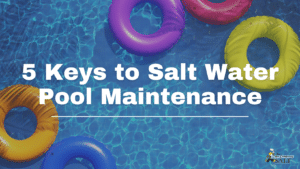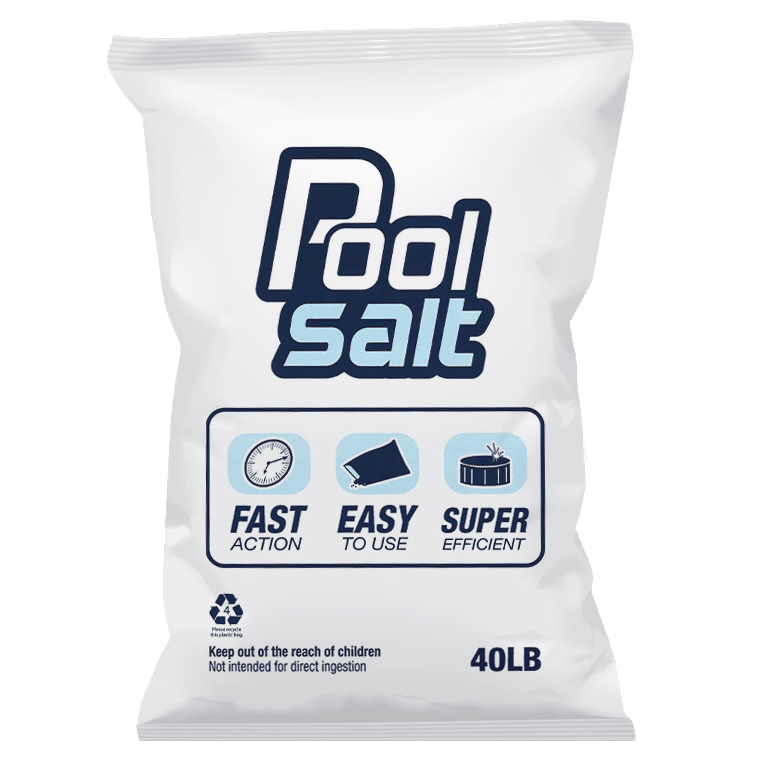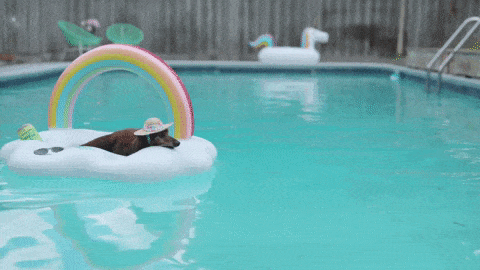Your pool parties are only as good as what you do to keep your pool clean. Here is what you need to know to ensure your salt water pool maintenance is effective for the season.
- Be Picky on the Type of Salt You Use
- The ingredients of the pool salt you choose play an important role in the lifespan of your pool. Additives can lessen the sanitizing power of the salt while also negatively impacting the equipment it is used in. You want to choose a pool salt that has a high purity level, intended for pool use only – such as Cope’s Pool Salt. That way you can ensure the product will benefit your salt water pool maintenance efforts and not hurt it.
- Know How Much Salt You Need
- Follow the guidelines provided by your pool salt system’s manufacturer and the directions on the pool salt itself. Adding too much or too little directly affects the pool’s chlorine levels and overall performance. “The ideal salt level for a pool is around 3,200PPM. If you’re starting with no salt (0 PPM) and you have a 10,000-gallon pool, you’ll need to add 267 pounds of salt. That’s six to seven 40-pound pool-grade bags of salt.” Having the right amount of salt is crucial in your salt water pool maintenance. Below is the usage guide for Cope’s 40-lbs of Pool Salt required to achieve recommended pool salt levels.
- Keep a Cleaning Schedule
- The Salt Cell can be considered the heart of your salt water pool. It is the part that converts the saltwater into chloride through electricity. If not examined and cleaned every two-three months, mineral and debris can buildup within the cell, posing a risk to your salt water pool maintenance and overall operation. But that is not the only thing that needs regular cleaning attention on your pool salt maintenance list. The pool deck, plaster, handrails, equipment, and surrounding area need to be consistently kept cleaned because of the corrosive nature of salt when in contact with it. Additionally, weather elements like a rainstorm, can also negatively affect your pool if not maintained. So when you’re kids are creating their own at home water park with the water hose, be sure to take a few minutes and splash the pool area as well. It will go a long way in your salt water pool maintenance.
- Circulation – Keep the Water Moving
- Health risks rise in a person who keeps a sedentary lifestyle. Similarly, your pool is more prone to algae collection, salt concentration, and structure damage if there is poor circulation. Preventing these things from occurring means maintaining regular water movement. This can be as simple as swimming in the pool daily during the pool season. Yet, that is not always enough. Slow performing or ineffective water circulation may be a sign that the system needs attention.
- Health risks rise in a person who keeps a sedentary lifestyle. Similarly, your pool is more prone to algae collection, salt concentration, and structure damage if there is poor circulation. Preventing these things from occurring means maintaining regular water movement. This can be as simple as swimming in the pool daily during the pool season. Yet, that is not always enough. Slow performing or ineffective water circulation may be a sign that the system needs attention.
- Testing, 1, 2, 3
- Which takes us to our next and final point. Tips for preventive salt water pool maintenance include testing the following items:
- Free chlorine and ph levels – weekly
- Salt levels – monthly
- Water chemistry – monthly
- Which takes us to our next and final point. Tips for preventive salt water pool maintenance include testing the following items:
If these levels go unchecked for an extended period of time, your salt water pool maintenance efforts will end up being much more costly and extensive than you initially anticipated. Knowing where these levels stand will help you determine how to best proceed and if contacting a specialist is necessary.
Like most goals in life, achieving optimal salt water pool maintenance is all about consistency. Choosing the right salt, knowing how much you need for your pool, creating a cleaning schedule, maintaining water circulation, and testing your pool’s chemical and water levels are only effective when they are met with regularity. And once they are, you’ll have a pool that not only sparkles but is ready to host an abundance of summer memories. Contact us to learn more about our salt products or peruse our selection here.




